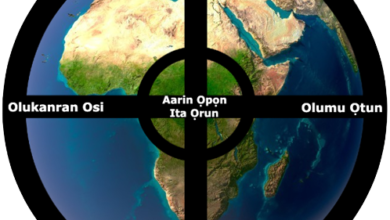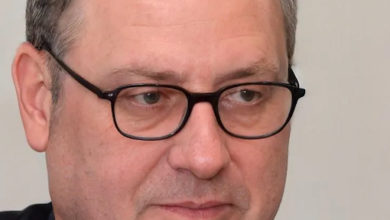Misinformation Thrives on Social Media: Nigerian Students Raise Concern on Regulation

By: Dauda Musbau
On a quiet evening in February, Ayuba (preferred only his first name to be in the media) was scrolling through his Facebook feed when his eye landed on a shocking post. His eyes stared fixedly at the claim about the death of a well-respected Sheikh in his neighborhood. A wave of disbelief washed over him. Without hesitation, he reached for his phone, called family and friends to confirm the tragic news. Minutes later, reality set in. The Sheikh was very much alive, yet the misinformation had already spread like wildfire, leaving confusion and panic in its wake.
Ayuba’s experience was one of countless instances where false information on social media has caused unnecessary distress. From fabricated celebrity deaths to misleading health tips and political propaganda, misinformation has become a stubborn stain on the fabric of the digital world. The speed and reach of social media make it easy for misinformation to thrive, leaving society grappling with an urgent dilemma, how to regulate falsehoods without suffocating free speech.
A Growing Concern
Abdulaziz Faiza, a 300-level student of Guidance and Counseling, believes that regulating it is like trying to do the impossible, “social media platforms do not encourage misinformation; it is the users who decide what to share. The only way to contain it is for everybody to be media literate.”
On the other hand, Abdullateef Faruq, a 300-level student of Education English, shared different perspectives. He believes misinformation is not just an inconvenience but a threat with real-world consequences. From inciting violence to manipulating public opinion and endangering lives, false information spreads like wildfire, igniting chaos wherever it lands.
Faruq supports the idea of regulation but emphasizes the need for balance. Social media companies, he argues, should take responsibility by improving fact-checking systems, promoting credible sources, and ensuring misleading content is flagged or removed.
However, he is wary of excessive control. Regulation, he insists, should never be a tool for censorship. A fair and transparent system is necessary, one that involves collaboration between governments, independent fact-checkers, tech companies, and civil society. More importantly, he believes media literacy plays a crucial role. When people can critically assess information before sharing it, misinformation loses its power. He compares media literacy to an umbrella in a storm, it won’t stop the rain, but it will keep one from getting drenched.
The Free Speech Dilemma
While some argue for stricter regulations, others believe social media should remain a free space for expression. Bamikole Abdulsamad, a 400-level Geology student, sees social media as a platform for content creation, influencing, marketing, and news dissemination.
He opined that it should be free from regulation, as controlling it could suppress voices that need to be heard. However, he acknowledges that misinformation is a problem and suggests that if regulation is to exist, it should focus solely on news dissemination, ensuring that certain laws guide what is posted. Social media, he says, is like a marketplace of ideas where every voice, no matter how small, should have a chance to be heard.
Even Abdulsamad recognizes the complexity of the issue. Regulation, he notes, is a double-edged sword, capable of protecting but also of harming, depending on how it is wielded. Striking a balance is crucial.
For Abdulkareem Ismail Ramadan, a recent graduate of Biological Sciences, the battle against misinformation is both necessary and complicated. He describes misinformation as a virus that mutates quickly, requiring constant vigilance. While regulation could prevent the spread of false news, he warns that it could also lead to censorship, where certain viewpoints are silenced. The key, he believes, lies in finding a middle ground.
Ramadan suggests an approach that balances regulation with freedom of expression. Instead of outright censorship, social media platforms could label posts flagged as misleading. Regulators could work with tech companies to develop algorithms that prioritize high-quality, trustworthy sources of information. This way, misinformation is controlled without stifling free speech.
According to Statista research, a survey conducted between January and February 2023, 64 percent of the respondents in Nigeria consumed news via Facebook. Compared to the other social media platforms considered, this was the highest share, followed by WhatsApp. The latter registered a slightly lower share of 63 percent. Social media is a leading source of news in Nigeria.
The Real-World Consequences
M.J. Kaura, a lecturer from the Department of Educational Foundations, believes that regulating misinformation is not just important but necessary. Fake news, he argues, is intentionally misleading or fabricated information that has become a pervasive issue in today’s digital age. The consequences are often devastating.
Fake news has fueled hate and communal clashes, turning digital lies into real-world violence. In 2018, misinformation on WhatsApp led to mob lynchings in India, resulting in the deaths of over twenty people. It has also been used as a weapon to influence political landscapes. During the 2016 U.S. presidential election, fabricated stories spread across social media, manipulating public opinion and shaking trust in institutions. In 2019, misinformation triggered violent protests in Indonesia, leading to widespread destruction and loss of lives.
Kaura believes that tackling misinformation requires a collective effort “By promoting media literacy and encouraging people to verify information before sharing it, society can foster a more informed and responsible public discourse.”



